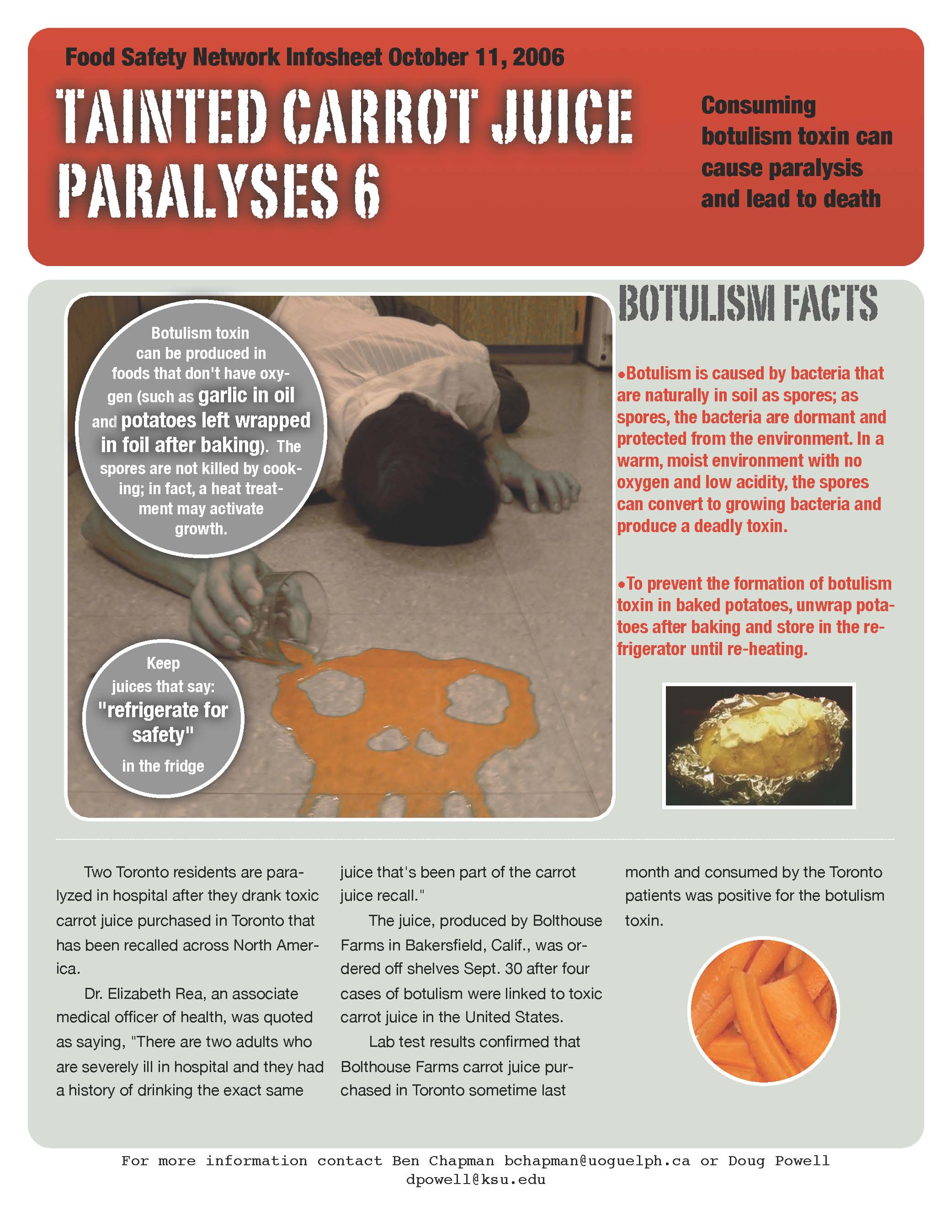In September 2006, three people living in Georgia developed food-borne botulism that was eventually traced to commercial carrot juice from a single bottle. Soon thereafter an additional case in Florida and two in Ontario, Canada surfaced.
The bacterium Clostridium botulinum secretes a potent toxin that causes botulism, a potentially fatal illness. Symptoms include dizziness, double vision, difficulty breathing and abdominal distention.
One of the 6 botulism patients died 90 days after illness onset. One year later, two others were still on ventilators. The remaining three were taken off ventilator support after 54, 90, and 129 days. Two survivors were at home, two were in rehabilitation facilities, and one was still hospitalized.
"This investigation demonstrates that carrot juice and other processed foods with no natural barriers to C. botulinum germination require additional chemical or thermal barriers," the investigators wrote in the medical journal Clinical Infectious Diseases.
Accordingly, they report, "In June 2007, the FDA modified its guidance for refrigerated low-acid juices to recommend adding a validated juice-treatment method, such as acidification or appropriate thermal treatment, to decrease the risk of C. botulinum contamination, should any breaches in refrigeration occur."
Here’s the food safety infosheet we made at the time.

